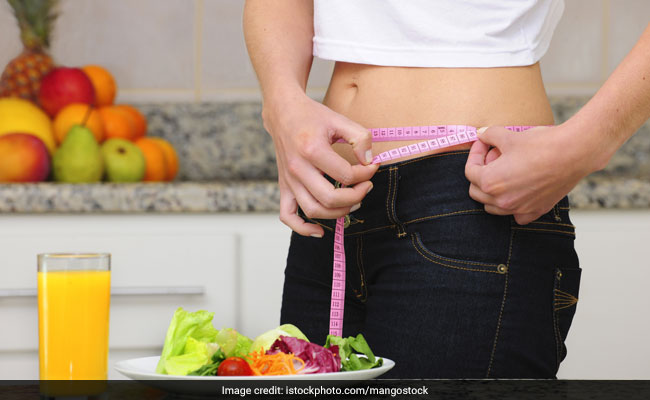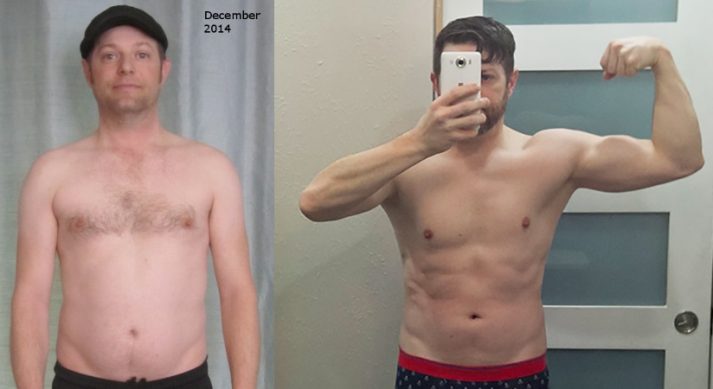
When you consume food, there are many different kinds of dietary fats. Although most of them are safe, there may be some that are harmful. In addition, they may contribute to your weight gain. If you eat too often, it can make it difficult to lose weight. This problem can be avoided by limiting your intake of fat. Here's how you can do it. First, identify what types of fat are in your diet. They can be classified as monounsaturated, trans and saturated.
It is important to understand the differences between unsaturated and saturated fats to help you eat healthy fats. Saturated Fats are solid at ambient temperature. They are found in animal product such as red meat, full fat dairy products, and egg yolks. Coconut oil, palm oil, and other oils can also contain saturated fats. Monounsaturated and polyunsaturated fats are good for your health, but you can find them in olive oils and vegetable oils.

Dietary fats come in different types. Monounsaturated fats can be harmful to your health, while saturated fats are unhealthy. Saturated fats, which are the most harmful type of fat, should be avoided if you want to lose weight. However, saturated and trans fats have a negative impact on your health. You should aim for a daily intake of five to ten grams of dietary cholesterol.
Although moderate amounts of saturated fat are healthy for your body it's best that you stick to a lower than ideal level. Saturated fats can cause weight gain and increase your chance of developing diabetes or cancer. You should limit your intake of saturated fat. You can make your diet more nutritious and decrease your overall calorie intake by following these tips. These foods are best for your health.
Saturated fats can be the most damaging. Saturated fats are the most harmful. They should not exceed five to six percent of your daily calories. However, saturated fats should be considered a part your diet. A lot of fats are a combination of fatty acids. It is best to include them in your diet. If you only eat one type, you can substitute it with unsaturated.

Saturated Fats are the worst. These fats are highly harmful to your health. So, you should try to reduce the amount of saturated fats in your diet. Saturated fats may cause you to gain weight. It is also important to monitor your sodium intake. The American Heart Association suggests that saturated fats be limited. Eat more fruits, vegetables, and whole-grain foods if you are looking for the best food options.
There are two types. You can either get them from animal products or plant-based foods. Omega-3 fats are good to the heart. Saturated fats are bad for your heart. There are many other benefits they can bring to your health. The omega-3 fats in fish and poultry are especially beneficial to your heart. They are essential to the health of your heart. If you eat foods rich in omega-3 fatty acids, your heart will thank you.
FAQ
How to get rid of belly fat fast
There are several ways to reduce belly fat fast. One way to reduce belly fat fast is to eat less food, and drink lots of fluids.
A second way to boost your metabolism is by running and swimming.
To quickly reduce belly fat, avoid sitting too much. Stand up more often throughout the day. This will help you burn more calories.
If you have already tried all these methods but still struggle with belly fat, there is another option.
This requires a belt. It tightens around the waist when you sit.
As a result you'll feel uncomfortable and will be more mobile. This makes it easier to lose weight and calories.
What is a good 7-day workout schedule?
A seven day exercise program should include cardiovascular training (running or biking), strength exercises (using freeweights, weight machines) and one flexibility/core workout. It's essential to do each activity at least once a week. Maximum 45 minutes should be allotted for each session.
Cardiovascular Exercises: Running, biking, swimming
It is important to complete at least 60 minutes of cardio per week. To achieve the best results, aim to exercise for at least 75 minutes each week. Cardio exercise can improve blood flow and stimulate muscle development.
Strength Training
While cardio exercises target the heart and lungs, strength training targets the muscles and bones. Strength training builds lean muscle mass, which helps burn calories even when resting.
Flexibility & Core Workouts
To strengthen your whole body, flexibility and core work outs are excellent ways to do so. Both yoga or Pilates are great options.
Is it true?
Protein helps to maintain healthy bones, tissue, and skin. Consuming too much protein can result is calcium excretion via urine. In turn, this can result in kidney stones.
It is important to remember that not all people get kidney stones from eating more than 2g protein per kilogram (2.2lbs) of body weight. It is possible to eat high levels of protein without developing kidney stones.
By watching how much sodium you consume, kidney stones can be prevented. Sodium regulates the body's water balance. Too much sodium can lead to kidney stones.
If you have kidney stone, you might also consider reducing your protein intake. Protein accounts for about half the daily caloric requirement of most adults. You'll lose weight if you reduce your intake of protein.
If you do decide to eat more protein, don't go overboard. Try to eat less than 20% protein in total calories.
Eggs are good for us.
All the nutrients that the body needs are found in eggs. It aids in maintaining strong bones, healthy hearts, and lungs, as it also maintains stable blood pressure.
Eggs are rich in protein, vitamin A, B12 and D,E,K, as well as vitamins A,B12 and D,E,K, calcium, iron, phosphorus, manganese, copper, magnesium, and riboflavin.
The egg yolk has high cholesterol. It does not contain any saturated fat. Eggs are lower in saturated fat than other foods.
They are also low in calories and sodium. They are very versatile and can be cooked any way you'd like. You can cook them in many ways, including poaching, boiling, hard-boiling, baking, and scramble.
They are very healthy and simple to make.
You should eat at least two whole eggs per day. You don't have to eat eggs.
Essential nutrients are found in eggs. Include eggs in your daily diet.
What is the best way to train?
It all depends on what you're looking for. If you want to build muscle mass, then do heavy weights first. Next, you can move onto cardio. Then if you want to lose weight, go from cardio to strength training.
You can burn fat by just doing cardio. Add strength training to your workouts.
If you are looking for muscle mass, cardio should be your last option. Cardio stimulates growth hormones and helps build muscle mass.
Also, eat before you workout. This will fuel your muscles, making them work harder. This will make you feel better while working out.
Statistics
- The PRS enabled risk stratification for overall prostate cancer and lethal disease with a four-fold difference between men in the highest and lowest quartiles (HR, 4.32; 95% confidence interval [CI], 3.16-5.89). (pubmed.ncbi.nlm.nih.gov)
- Candidates and applicants must pass all four tests at 70% (minimum level) to graduate from Basic Deputy U.S. Marshal (BDUSM) Training. (usmarshals.gov)
- According to the American Heart Association, blood pressure should be checked at least once every two years, beginning at age 20. (my.clevelandclinic.org)
- By John Thompson Take a whopping 38% off a set of PowerBlock Pros. (menshealth.com)
- 10 pounds in a month is likely during a lean bulking phase, especially for beginners. (muscleandstrength.com)
External Links
How To
What's the best food for men?
Men should consume five portions of fruits and veggies per day. They should limit their intake of red meat, and avoid fast food.
Vegetables and fruits are rich in antioxidants, which can protect against cancer and cardiovascular disease.
Vegetables include broccoli, cauliflower, carrots, spinach, tomatoes, peppers, cucumbers, lettuce, mushrooms, etc.
Beans and peas are high in fiber and protein as well.
Omega-3 fatty acids are abundant in nuts and seeds. Omega-3 s are essential for brain function and hormone production.
Another good source of omega-3s is fish. Fish contains more mercury than most other meats. However, fish liver oil does contain fewer toxins.
For normal growth and development, Omega-6s are required in vegetable oils such as soybean, sunflower, safflower and cottonseed oils.
Poultry is a good source of lean protein. Chicken breast is one the healthiest meats.
Lean beef is low on saturated fats, cholesterol, and other harmful substances. Consuming too much red meat can increase your chance of getting prostate cancer.
Avoid processed meats such as sausage and hot dogs. These foods contain added nitrates, which can lead to cancer.
It is obvious that exercise is important for overall health. Even if you exercise regularly, what do you do? Is there any other way to improve or maintain your physical health?
The answer is yes! You can do many things to ensure you get the most out your workouts. Here are some tips to help you maximize your workout.
Take it slow. Do not push yourself too hard your first session. You could injure yourself. You can start slowly increasing your intensity by starting at a comfortable pace.
Before and after you stretch. Stretching can help to loosen tight muscles, decrease soreness, improve flexibility, and reduce pain. You can stretch by lying down, standing up, or walking around.
Cool down. This is particularly important when doing cardio exercises. Your body needs time to recover between sessions, so it doesn't become tiring. To cool down, walk slowly, take deep breaths, or go for a short swim.
Hydrate. Hydration is key to reducing muscle cramps and keeping you hydrated. Sports drinks, however, can be beneficial.
Make sure you eat healthy. You should eat enough calories every day. Regular meals throughout the day can help you stay focused and energized during your workouts.
Get enough sleep. Get enough rest to feel refreshed and ready to tackle your next training session. You must also get adequate sleep to heal damaged tissues.